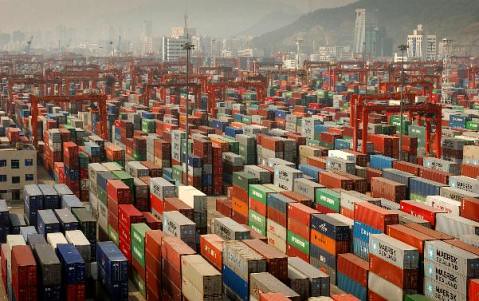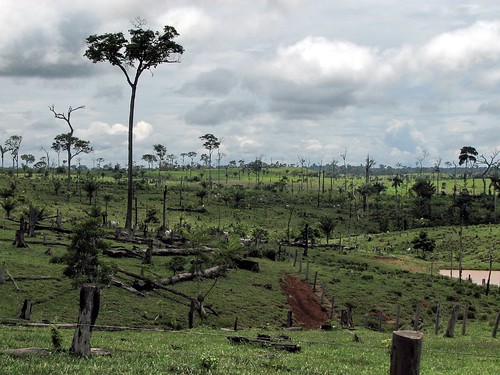
The NY Times reports today: I.M.F. Reduces Estimates for Global Growth:
The International Monetary Fund warned on Tuesday that global growth prospects had dimmed as the sovereign debt crisis in the euro zone entered a “perilous new phase.” Releasing quarterly updates of three reports on the outlooks for the economy, debt and global financial stability, the fund cut its estimates of global growth this year to 3.25 percent, from the 4 percent it forecast in September...
According to the NY Times, the I.M.F. warned against governments cutting their stimulus packages: "The main risk is that too many countries will cut their budgets too deeply, too soon, sapping demand from the still-weak global economy."
The huge dilemma is that global economic growth and Amazon deforestation (and other degradations of nature) are related. Philip Fearnside who is one of the leading researchers of Amazonian socioeconomic and ecological trends recently noted:
Deforestation in Brazil remains a serious problem despite the fall in rates between 2005 and 2010. Only part of this decrease was the result of government programmes or stricter enforcement of environmental laws.The main reason was that the international price of beef and soya fell from 2003 to 2007, and this was followed by the global economic collapse that began in 2008. Over that period, the Brazilian real almost doubled relative to currencies such as the US dollar. This cut the profits of commodity exporters deeply, as all their expenses remained in reals while their revenues were in diminished foreign currencies. Such macroeconomic “windfalls” can help contain deforestation, but they are only temporary.
Thus, we are faced with an uncomfortable choice between a slowed flow manufactured products -- such as from China

Shipping containers in a Chinese port
and a slowed flow of commodities -- such as as beef from Brazil

Deforestation for cattle in Capixaba Acre Brazil
The developed economies don't want to give up what they've got and the developing economies don't want to give up the opportunity to get something like it. The result is that it is unlikely that an ecologically meaningful political solution will emerge in Brazil, in Europe, in China or globally. The giant of economic development is already too big and further development through endless growth without limit is an illusion, but it is one that is too powerful to break with childish dreams of clever politics or policy. More likely, we will simply move from bubble to bust and back until nature's justice kicks in.
Can we really keep marketing the land, its products and services? Can the market really be the final arbiter? What are its limits? Perhaps only catastrophe can show them to us? Perhaps Nature's justice will be the teacher? Perhaps we must face a "crisis shock" for adolescent-in-the-market consciousness of the Industrial Age to yield to the limited-growth-and-mutuality consciousness associated with being part of a global community. Hopefully, there can be a consciousness that compassionately connects humanity and the land.
As is so often the case, the great naturalist and father of the American land ethic, Aldo Leopold, offers a deep insight: "We abuse land because we regard it as a commodity belonging to us. When we see land as a community to which we belong, we may begin to use it with love and respect."
Global crises may offer the beginning, the cracks through which to see our world differently. Same old, same old won't work!






No comments:
Post a Comment